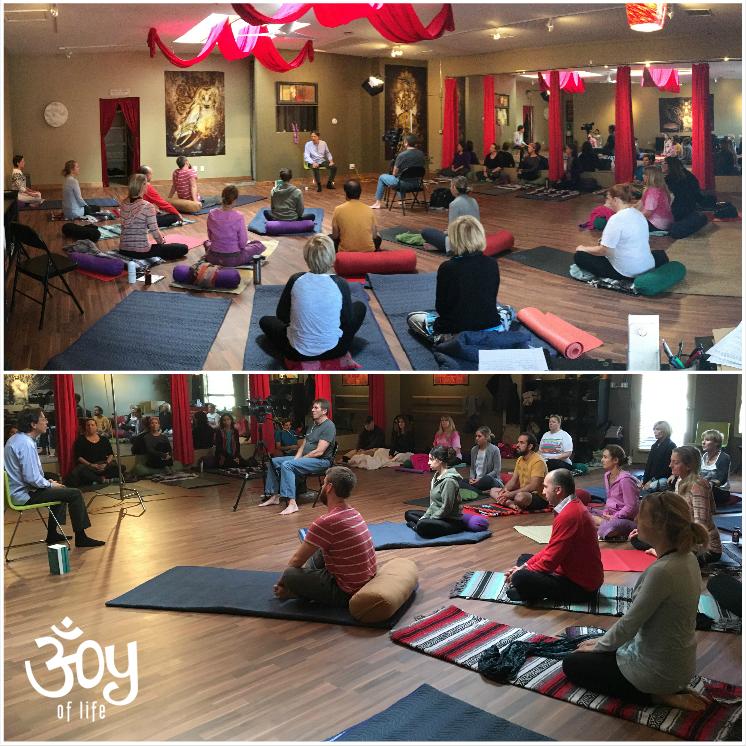In the hustle and bustle of modern life, where the demands of work, family, and endless to-do lists often pull us in a thousand different directions, finding a moment of peace can seem like an elusive dream. Yet, nestled within the chaos, there lies a simple, transformative practice that can significantly enhance your well-being: mindfulness. Imagine starting each day with a clear mind, navigating stress with grace, and cultivating a deep sense of inner calm. This is not a far-off fantasy but an attainable reality through daily mindfulness practices. In this article, we will explore the profound impact mindfulness can have on your health and offer practical tips to seamlessly weave these practices into your everyday routine. Whether you’re a seasoned practitioner or a curious beginner, join us on a journey to discover how mindfulness can become your ally in achieving a healthier, more balanced life.
Cultivating Awareness: The Foundation of Mindfulness
In a world bustling with distractions, awareness serves as the cornerstone of mindfulness, grounding us in the present moment. By tuning into our surroundings and internal states, we can cultivate a deeper understanding of ourselves and our environment. This heightened awareness can lead to significant health benefits, from reducing stress to enhancing emotional resilience.
To foster this sense of awareness, consider integrating these practices into your daily routine:
- Mindful Breathing: Take a few minutes each day to focus on your breath. Notice the sensation of air entering and leaving your lungs.
- Body Scanning: Pay attention to different parts of your body, starting from your toes and moving upwards. Acknowledge any tension or discomfort without judgment.
- Sensory Observation: Engage your senses by observing your surroundings. Notice the colors, sounds, and textures around you.
- Mindful Eating: Savor each bite of your meal. Pay attention to the flavors, textures, and smells, and eat slowly.
By incorporating these simple yet powerful techniques, you can lay a solid foundation for a more mindful and healthier life.

Breathing Techniques: Harnessing the Power of Your Breath
Our breath is a powerful tool that often goes unnoticed in the hustle and bustle of daily life. Yet, with mindful attention, it can become a gateway to improved health and well-being. Practicing specific breathing techniques can help you reduce stress, enhance concentration, and even boost your immune system. Here are some methods to get you started:
- Deep Belly Breathing: Also known as diaphragmatic breathing, this technique involves inhaling deeply through the nose, allowing your belly to rise, and then exhaling fully through the mouth. This helps in activating the parasympathetic nervous system, promoting relaxation.
- 4-7-8 Breathing: Inhale quietly through the nose for a count of four, hold the breath for a count of seven, and exhale completely through the mouth for a count of eight. This method can help calm the mind and prepare you for a restful sleep.
- Box Breathing: Inhale for four seconds, hold your breath for four seconds, exhale for four seconds, and hold again for four seconds. This technique is excellent for grounding and centering yourself during moments of stress.
Integrating these breathing exercises into your daily routine can have profound effects on your mental and physical health. Take a few minutes each day to focus on your breath, and witness the transformative power it holds.

Mindful Eating: Nourishing Your Body and Mind
Embracing mindful eating involves being fully present during meals, which can lead to profound benefits for both your body and mind. By focusing on the sensory experiences of eating—such as the taste, texture, and aroma of food—you can cultivate a deeper connection with what you consume. This practice can help you recognize your body’s hunger and satiety signals more accurately, potentially preventing overeating and promoting healthier dietary choices.
- Slow Down: Take the time to chew your food thoroughly and savor each bite. This not only aids digestion but also allows you to enjoy your meal fully.
- Eliminate Distractions: Turn off the TV, put away your phone, and create a peaceful eating environment. This helps you to focus solely on your meal.
- Engage Your Senses: Pay attention to the colors, smells, and flavors of your food. Engaging multiple senses can enhance your eating experience and satisfaction.
- Express Gratitude: Before starting your meal, take a moment to appreciate the food in front of you. Acknowledging the effort that went into preparing your meal can foster a sense of gratitude and mindfulness.
Daily Meditation: Creating a Sanctuary of Calm
Transforming a corner of your home into a sanctuary of calm can significantly enhance your daily meditation practice. This dedicated space doesn’t have to be elaborate; even a small, quiet nook can serve as your personal retreat. Begin by incorporating elements that evoke tranquility and comfort:
- Soft Lighting: Use candles or dimmable lamps to create a soothing ambiance.
- Natural Elements: Integrate plants, stones, or a small water feature to bring a touch of nature indoors.
- Comfortable Seating: A cushion, yoga mat, or a comfy chair can make your meditation time more pleasant.
- Calming Scents: Essential oils or incense can help you relax and focus.
- Minimal Distractions: Ensure the space is free from clutter and electronic devices to maintain a peaceful environment.
By creating a serene and inviting meditation area, you invite calmness into your daily routine, fostering a deeper connection with your mindfulness practice. This sanctuary becomes a haven where you can escape the stresses of everyday life, even if only for a few moments each day.





